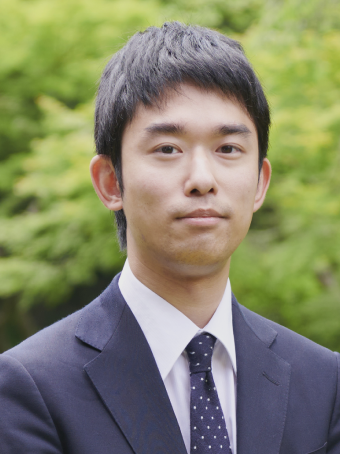解説 ポルトガル総選挙:二大政党の後退と極右の台頭

解説 ポルトガル総選挙
モンテネグロ首相の利益相反スキャンダルを受けて、2025年3月に内閣信任決議が否決され、5月18日にポルトガル議会(任期4年、定数230)で総選挙が実施された。2022年、2024年に続く今回の総選挙で、3年余りの間に3度の選挙が行われる異例の事態となっており、政治的に不安定な状態が続いている。
今回の選挙では、社会民主党(PSD)を中心とする与党連合「民主同盟」(AD)が前回より9議席増の89議席を獲得した。また、前回の選挙で議席を4倍に増やした極右政党シェーガも、有権者の反移民感情や経済的・文化的不安に訴えかけることで、移民が多い南部や中部の選挙区を中心に支持を広げ、50議席から58議席へと議席を伸ばして第2党に浮上した。一方、2015年から2024年まで長期にわたり政権を担っていた野党・社会党(PS)は、今回の選挙で20議席を失い、58議席にとどまるという1987年以来最悪の結果となった。信任決議では他の野党(リベラル・イニシアティブ党を除く)とともに反対票を投じることで議会を解散に追い込んだPSだったが、現地報道では、若年層や低所得層を中心とする政権批判の受け皿になりきれず、党内の再建も不十分だった点が指摘される。
社会民主党(PSD)は、ジョゼ・マヌエル・バローゾ元欧州委員会委員長を輩出した中道右派の政党であり、中道左派の社会党(PS)も、アントニオ・グテーレス国連事務総長やアントニオ・コスタ前欧州理事会常任議長など、欧州内外で要職を担う政治家を送り出してきた。しかし、こうしたPSDとPSという二大政党がポルトガル政治の中核を担うという構図は近年大きく揺らいでおり、もはや「二大政党制」とは言いがたい状況となっている。
PSDのモンテネグロ党首は極右政党シェーガとの連立を改めて否定しており、過半数を満たすための連立の選択肢は「民主同盟」と社会党(PS)との大連立に限られるが、実現しなかった場合はADによる少数連立政権が継続することとなる。二大政党間での政策の差が小さく、1974年の民主化以来比較的安定した政治を維持してきたポルトガルであるが、極右政党の台頭により、いずれの形であれ、しばらくは不安定な政治が続くことが予想される。

選挙は世界を変えるのか:岐路に立つ民主主義
選挙による国内政治のダイナミクスの変化は世界政治に影響を与え、地政学・地経学上のリスクを生じさせる可能性があります。また、報道の自由の侵害や偽情報の急増など、公正な選挙の実施に対する懸念が高まっているなか、今後の民主主義の行方が注目されています。本特集では、各国の選挙の動向を分析するとともに、国内政治の変化が国際秩序に与える影響についても考察していきます。
(Photo Credit: Shutterstock)


Research Fellow,
Digital Communications Officer
Yusuke Ishikawa is Research Fellow and Digital Communications Officer at Asia Pacific Initiative (API) and Institute of Geoeconomics (IOG). His research focuses on European comparative politics, democratic backsliding, and anti-corruption. He also serves as External Contributor for Transparency International’s Anti-Corruption Helpdesk, as Associate Research Fellow at the EUROPEUM Institute for European Policy, and as Part-time Lecturer in European Affairs at the Department of Economics and Business Management, Saitama Gakuen University. Prior to his current roles, Research Associate at IOG and API, contributing to its translation project of Critical Review of the Abe Administration into English and Chinese. Previously, he has worked as Research Assistant for API's CPTPP program and interned with its Fukushima Nuclear Accident and Abe Administration projects. His other experience includes serving as a visiting research fellow at EUEOPEUM Institute, a full-time research intern at Transparency International Hungary, and as a part-time consultant with Transparency International Defence & Security in the UK. His publications include "NGOs, Advocacy, and Anti-Corruption" (In Routledge Handbook of Anti-Corruption Research and Practice, 2025) and A Dangerous Confluence: The Intertwined Crises of Disinformation and Democracies (Institute of Geoeconomics, 2024). He has been featured in national and international media outlets including Japan Times, NHK, TV Asahi, Neue Zürcher Zeitung (NZZ), Handelsblatt, Expresso, and E-International Relations (E-IR). He received his BA in Political Science from Meiji University, MA in Corruption and Governance (with Distinction) from the University of Sussex, and another MA in Political Science from Central European University. During his BA and MAs, he also acquired teacher’s licenses in social studies in secondary education and a TESOL (Teaching English to Speakers of Other Language) certificate. [Concurrent Positions] Associate Research Fellow, EUROPEUM Institute for European Policy, Czechia External Contributor Consultant, Anti-Corruption Helpdesk, Transparency International Secretariat (TI-S), Germany Part-time Lecturer, Department of Economics and Business Management, Saitama Gakuen University, Japan
View Profile-
 The Supreme Court Strikes Down the IEEPA Tariffs: What Happened and What Comes Next?2026.02.27
The Supreme Court Strikes Down the IEEPA Tariffs: What Happened and What Comes Next?2026.02.27 -
 Fed-Treasury Coordination as Economic Security Policy2026.02.13
Fed-Treasury Coordination as Economic Security Policy2026.02.13 -
 What Takaichi’s Snap Election Landslide Means for Japan’s Defense and Fiscal Policy2026.02.13
What Takaichi’s Snap Election Landslide Means for Japan’s Defense and Fiscal Policy2026.02.13 -
 Challenges for Japan During the U.S.-China ‘Truce’2026.02.12
Challenges for Japan During the U.S.-China ‘Truce’2026.02.12 -
 India and EU Sign Mother of All Deals2026.02.09
India and EU Sign Mother of All Deals2026.02.09
 Orbán in the Public Eye: Anti-Ukraine Argument for Delegitimising Brussels2026.02.04
Orbán in the Public Eye: Anti-Ukraine Argument for Delegitimising Brussels2026.02.04 Fed-Treasury Coordination as Economic Security Policy2026.02.13
Fed-Treasury Coordination as Economic Security Policy2026.02.13 India and EU Sign Mother of All Deals2026.02.09
India and EU Sign Mother of All Deals2026.02.09 When Is a Tariff Threat Not a Tariff Threat?2026.01.29
When Is a Tariff Threat Not a Tariff Threat?2026.01.29 Navigating Uncertainty in U.S. Space Policy: Decoding Elon Musk’s Influence2025.04.09
Navigating Uncertainty in U.S. Space Policy: Decoding Elon Musk’s Influence2025.04.09











